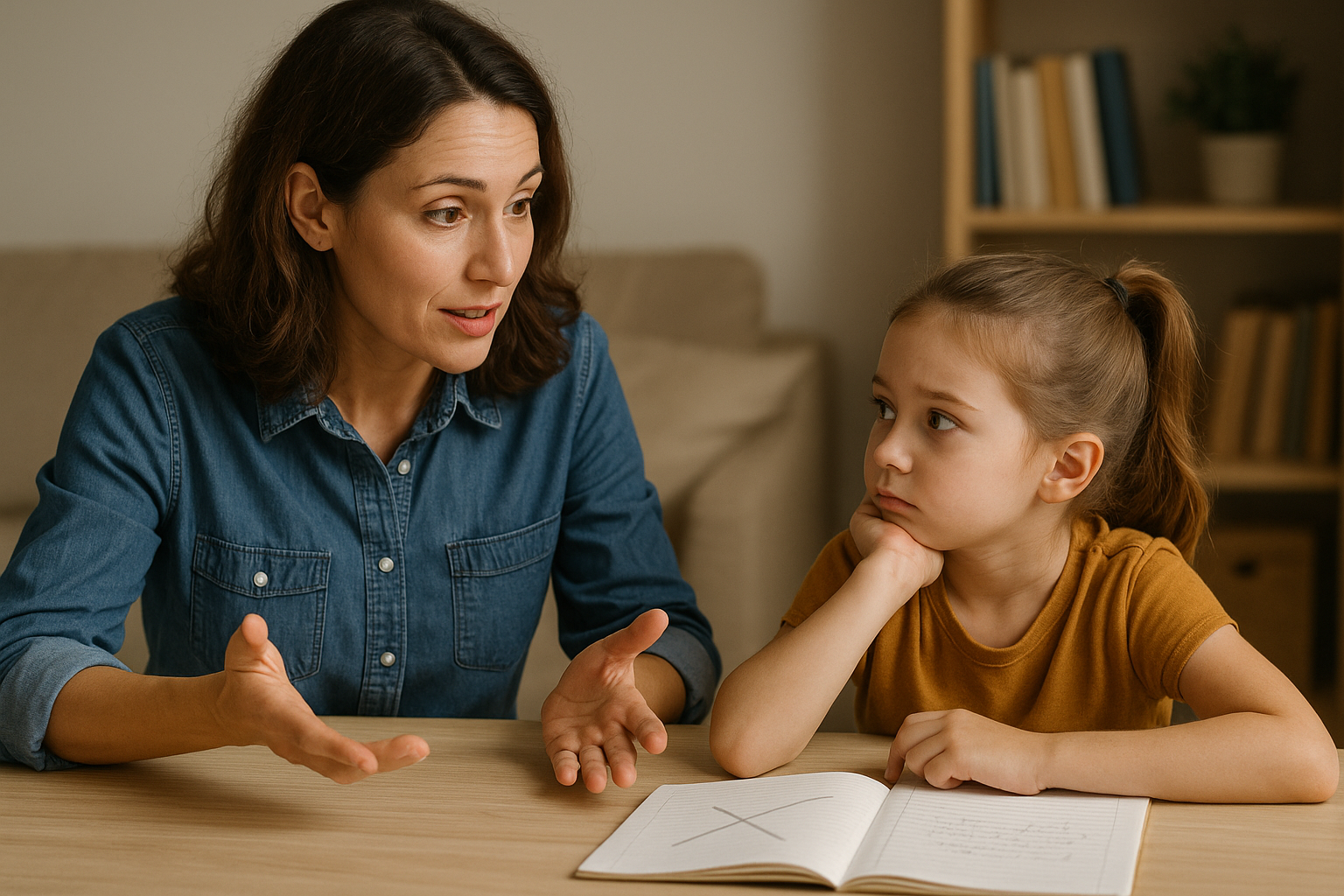Every child makes mistakes—it’s part of growing up. But how we respond to those mistakes can either build shame or strengthen resilience. When you teach your child that mistakes are not failures but opportunities to learn, you’re giving them one of the most important emotional tools they’ll ever need.
Children who are allowed to learn from mistakes grow into confident, flexible, and curious adults. Here’s how to talk to your child about mistakes in a way that encourages growth, courage, and self-compassion.
Shift the Mindset: Mistakes Are Normal
Many children believe that mistakes mean they’re not smart or not good enough—especially if they feel judged when something goes wrong. Start by reframing how your child views mistakes.
Say things like:
- “Everyone makes mistakes—it means you’re learning.”
- “I make mistakes too, and that’s how I get better.”
- “Mistakes are how our brain grows.”
Normalize mistakes as a natural part of trying, exploring, and improving.
Share Your Own Mistakes
Be open about your imperfections. When children see that even adults mess up (and recover), they feel safer to try new things themselves.
You might say:
- “I forgot to set the timer and burned dinner. I’ll try again tomorrow.”
- “I made a mistake at work today. I apologized and learned what to do differently next time.”
- “When I was your age, I once forgot my homework. I learned to double-check my bag before leaving.”
Real stories help children see that failure isn’t final—it’s part of life.
Focus on the Process, Not Just the Outcome
Instead of only praising results like “You got it right!” focus on how your child got there.
Examples:
- “I saw how hard you worked on that puzzle.”
- “You tried three different ways before solving that problem.”
- “You stayed calm even when it got tricky—that’s real progress.”
When children value effort and persistence, they’re less afraid of making mistakes.
Stay Calm When Your Child Messes Up
It’s natural to feel frustrated when your child spills something, forgets something, or breaks a rule—but your reaction matters.
Responding with anger or shame teaches them to hide mistakes. Responding with calm and curiosity teaches them to reflect and grow.
Try:
- “It looks like this didn’t go how you expected. Want to talk about what happened?”
- “How are you feeling about it?”
- “What do you think we can learn from this?”
A calm response builds trust—and makes it more likely your child will come to you in the future.
Ask Reflection Questions
Help your child explore their mistake without blame. Ask open-ended questions like:
- “What do you think caused this?”
- “What would you do differently next time?”
- “Was there anything that helped?”
- “What did you learn from this experience?”
This helps develop problem-solving skills and personal responsibility—without making your child feel like a failure.
Avoid Labels Like “Good” or “Bad”
When you label actions or results as “good” or “bad,” children may start labeling themselves that way.
Instead of:
- “You were bad for forgetting your homework.”
- “That was a bad choice.”
Try:
- “You forgot your homework today. What can we do to remember next time?”
- “That choice didn’t work out the way you wanted. Let’s think of a better one.”
Separate the mistake from your child’s identity.
Create a Safe Space for Trial and Error
Make your home a place where experimentation is welcomed, not judged.
Encourage your child to:
- Try new things, even if they might fail
- Ask questions without fear of being wrong
- Take responsibility for their choices in a supportive environment
Celebrate risk-taking and creativity—not just success.
Say:
- “That didn’t work—but I love that you tried.”
- “You were brave to test something new.”
- “Let’s see what happens if we try it a different way.”
Use Books and Stories to Talk About Mistakes
Children’s books are filled with characters who make mistakes, face consequences, and grow. Use these stories to spark conversations.
Ask:
- “What mistake did that character make?”
- “How did they fix it?”
- “What would you have done?”
This lets your child explore mistakes from a safe emotional distance.
Encourage Apologies and Repair—Not Shame
When a mistake affects someone else, help your child take responsibility in a respectful way.
Say:
- “It’s okay that you made a mistake. What can we do to make it right?”
- “Let’s think of a way to apologize or fix this.”
- “I’m proud of you for taking ownership.”
Focus on repair and accountability—not punishment.
Celebrate What They Learned
After working through a mistake, take time to highlight what your child gained from the experience.
You can say:
- “You learned to double-check your backpack.”
- “Now you know to ask for help sooner.”
- “You discovered a new way to do that!”
Learning becomes the reward—not just getting it “right.”
Mistakes Are Stepping Stones to Growth
When you teach your child that mistakes are part of learning—not something to avoid—they become more resilient, curious, and self-assured. They learn that it’s okay to try, fail, and try again.
And perhaps most importantly, they learn that no mistake can ever take away their worth or your love.
With your support, mistakes become less scary—and growth becomes a lifelong habit.
